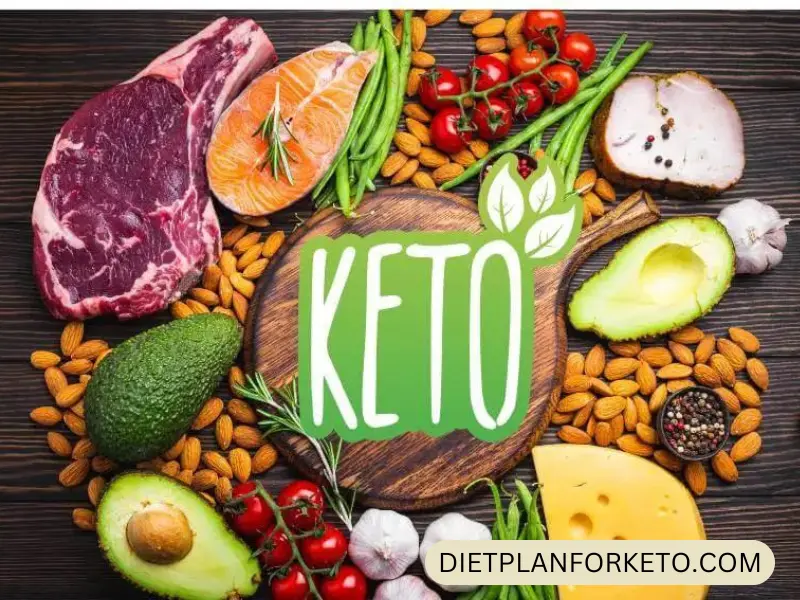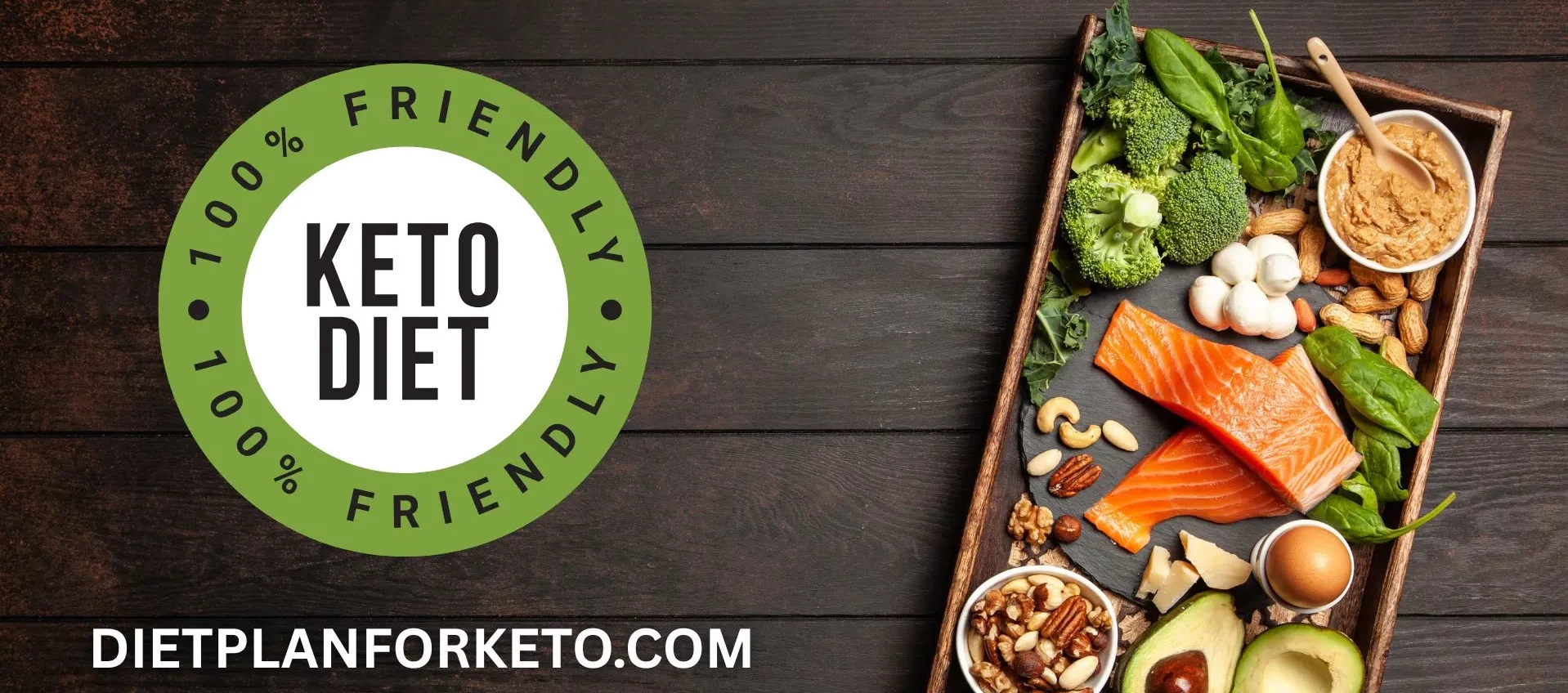Starting a ketogenic diet is an exciting journey toward better health, weight management, and increased energy.
However, one of the most common challenges keto dieters face is staying hydrated. On keto, your body shifts how it processes fluids and electrolytes, which can make maintaining hydration more complex than on a standard diet.
In this comprehensive guide, we’ll explore why hydration is crucial on a ketogenic diet, the changes your body undergoes during ketosis, and strategies for ensuring you stay properly hydrated.
With the right approach, you can avoid dehydration, maintain your energy levels, and keep your body in optimal condition.
Table of Contents
- Why Hydration is Key on a Keto Diet
- How the Keto Diet Affects Your Hydration Needs
- The Role of Electrolytes in Keto Hydration
- Symptoms of Dehydration on a Keto Diet
- Best Hydration Strategies for Keto Dieters
- Foods and Drinks to Help You Stay Hydrated
- Keto-Friendly Electrolyte Supplements
- Tips for Managing Keto Flu Through Hydration
- Mistakes to Avoid When Staying Hydrated on Keto
- Final Thoughts: Hydration for Long-Term Keto Success
1. Why Hydration is Key on a Keto Diet
Staying hydrated is crucial for everyone, but on a ketogenic diet, it becomes even more essential.
The keto diet drastically reduces carbohydrate intake, which changes how your body processes water. When you cut carbs, your body uses up glycogen stores, a form of glucose stored in the liver and muscles, which holds a significant amount of water.
For every gram of glycogen, your body stores about three grams of water. As you burn through glycogen on a keto diet, the water attached to it is also released, causing an initial rapid loss of fluids.
This loss is a primary reason keto dieters experience quick weight loss in the first week, but it also increases the risk of dehydration if you’re not replenishing those lost fluids.
Why Hydration is Important:
- Supports energy levels: Staying hydrated helps maintain your energy, especially when your body is transitioning into ketosis.
- Prevents fatigue and dizziness: Dehydration can lead to dizziness, fatigue, and headaches—symptoms often mistaken for the keto flu.
- Promotes digestive health: Adequate water intake is essential for preventing constipation, a common issue for keto dieters.
- Boosts physical performance: Hydration helps your muscles work efficiently, important if you’re working out or leading an active lifestyle while on keto.
- Maintains skin health: Proper hydration keeps your skin looking healthy and glowing.
2. How the Keto Diet Affects Your Hydration Needs
When you shift to a keto diet, your body’s water balance is altered in a few significant ways:
- Increased Fluid Loss: As you decrease carbohydrate intake, your body loses more water through urination. This is why people on keto may find themselves visiting the bathroom more often.
- Electrolyte Imbalance: Along with water, your body also excretes electrolytes—minerals like sodium, potassium, and magnesium—that are crucial for nerve function, muscle contractions, and fluid balance.
- Less Water Retention: With fewer carbohydrates, the body retains less water, leading to an overall drop in fluid levels.
Given these changes, it’s crucial to increase both your water and electrolyte intake to stay hydrated and avoid the side effects of dehydration.

3. The Role of Electrolytes in Keto Hydration
Electrolytes are minerals that carry an electric charge and are vital for a range of bodily functions, including maintaining fluid balance, supporting nerve signaling, and regulating muscle contractions.
On a ketogenic diet, your body loses electrolytes more rapidly, making it essential to replenish them to stay hydrated and avoid negative side effects.
The key electrolytes for keto dieters include:
- Sodium: Plays a major role in regulating blood pressure, fluid balance, and muscle function. On keto, your body excretes more sodium than usual, increasing the risk of deficiency.
- Potassium: Helps balance fluids in your body and is essential for heart and muscle function. Low potassium levels can lead to fatigue, cramps, and heart palpitations.
- Magnesium: Vital for muscle relaxation, nerve function, and energy production. Magnesium deficiency can cause muscle cramps, insomnia, and headaches.
To maintain proper hydration on keto, you need to be mindful of replenishing these electrolytes regularly.
4. Symptoms of Dehydration on a Keto Diet
The symptoms of dehydration can be more pronounced on a ketogenic diet due to the increased loss of fluids and electrolytes. Some of the most common symptoms include:
- Headaches: Often a sign that you’re losing too much water and sodium.
- Fatigue: Feeling unusually tired can be due to fluid and electrolyte imbalances.
- Dizziness: Rapid fluid loss can cause your blood pressure to drop, leading to dizziness or lightheadedness.
- Dry mouth and skin: These are clear signs that your body is in need of more water.
- Constipation: Dehydration can slow down your digestive system, leading to constipation.
- Muscle cramps: Low levels of magnesium and potassium often result in muscle cramps or spasms.
These symptoms can be managed or even prevented by staying vigilant about your water and electrolyte intake.
5. Best Hydration Strategies for Keto Dieters
Here are the best strategies to maintain optimal hydration levels while on a keto diet:
- Drink plenty of water: Aim for at least 8-10 glasses of water per day, but you may need more depending on your activity level, climate, and body size. A general rule is to drink half your body weight in ounces of water daily.
- Add electrolytes to your water: Sprinkle a pinch of high-quality sea salt into your water, or use an electrolyte powder to boost your sodium, potassium, and magnesium intake.
- Drink broth: Bone broth or vegetable broth is rich in electrolytes and provides an easy, delicious way to stay hydrated.
- Eat hydrating keto-friendly foods: Certain foods like cucumbers, zucchini, and leafy greens have high water content and can help keep you hydrated.
- Monitor urine color: Clear or pale yellow urine typically indicates adequate hydration, while dark yellow suggests you need more fluids.
6. Foods and Drinks to Help You Stay Hydrated
On a keto diet, you want to focus on low-carb foods that also help with hydration. Here are some top choices:
Hydrating Keto-Friendly Foods:
- Cucumber: Contains over 90% water and is low in carbs.
- Zucchini: High in water and fiber, great for maintaining hydration.
- Lettuce: Very low in carbs and packed with water, ideal for salads.
- Spinach: Rich in magnesium and water content, making it perfect for hydration and electrolyte replenishment.
- Cauliflower: Another hydrating veggie that’s versatile for keto dishes.
Keto-Approved Hydrating Drinks:
- Water: Always the go-to for hydration.
- Electrolyte-infused water: Many brands offer keto-friendly electrolyte waters without added sugar.
- Herbal teas: Unsweetened herbal teas can be refreshing and hydrating.
- Bone broth: Packed with electrolytes and water, bone broth is both nourishing and hydrating.
- Coconut water (in moderation): While slightly higher in carbs, small amounts of coconut water can provide potassium and hydration.
7. Keto-Friendly Electrolyte Supplements
Supplementing with electrolytes is one of the easiest ways to stay hydrated and avoid the negative side effects of dehydration. Here are some keto-friendly options:
- Electrolyte Powders: These powders can be added to water and usually contain sodium, potassium, and magnesium.
- Electrolyte Capsules: Convenient and portable, electrolyte capsules offer the essential minerals without any added carbs or sugars.
- Sodium Tablets: For those who are particularly sodium-deficient, sodium tablets can help replenish this essential electrolyte quickly.
- Magnesium Supplements: If you’re experiencing muscle cramps or sleep issues, magnesium supplements can be particularly helpful.
Always choose supplements that are free of added sugars and carbs to stay in line with your ketogenic goals.
8. Tips for Managing Keto Flu Through Hydration
Keto flu is a set of symptoms that some people experience when transitioning into ketosis. Symptoms often mimic dehydration, including headaches, fatigue, irritability, and muscle cramps. Hydration is one of the best defenses against keto flu.
Here’s how to manage it:
- Increase water intake: Especially during the first week, drink more water than usual to prevent dehydration.
- Replenish electrolytes frequently: Sodium, potassium, and magnesium levels drop rapidly during the initial phase of ketosis, so be sure to supplement these regularly.
- Sip on broth: Bone broth is rich in electrolytes and can be soothing when you’re experiencing keto flu symptoms.
- Limit intense exercise: During the first week, avoid strenuous exercise as your body adjusts, and focus on staying hydrated.
- Monitor your symptoms: If you experience severe symptoms, it may be a sign that your body needs more electrolytes.
9. Mistakes to Avoid When Staying Hydrated on Keto
It’s easy to make hydration mistakes when you’re focused on the demands of a keto diet. Here are some common mistakes and how to avoid them:
- Not drinking enough water: Because you’re losing water faster on keto, you need to increase your water intake to compensate for the losses.
- Neglecting electrolytes: Drinking water alone isn’t enough. You also need to replace lost electrolytes like sodium, potassium, and magnesium.
- Consuming sugary drinks: Avoid sports drinks and other beverages that are high in sugars and carbs, as they can knock you out of ketosis.
- Overhydrating without replenishing electrolytes: Drinking too much water without electrolytes can lead to an electrolyte imbalance, which may cause symptoms like headaches, confusion, or cramps.
10. Final Thoughts: Hydration for Long-Term Keto Success
Staying hydrated on a keto diet is a critical component of your success. By understanding the unique challenges of hydration on keto and following these strategies—drinking plenty of water, replenishing electrolytes, and eating hydrating foods—you can maintain balance, avoid common pitfalls, and thrive on your ketogenic journey.
Proper hydration not only helps you feel better day-to-day but also ensures that your body functions optimally, making it easier to stick with keto and reap the long-term benefits.
Remember, staying hydrated is an ongoing practice, and with the right habits, you can continue to feel your best while achieving your keto goals.
